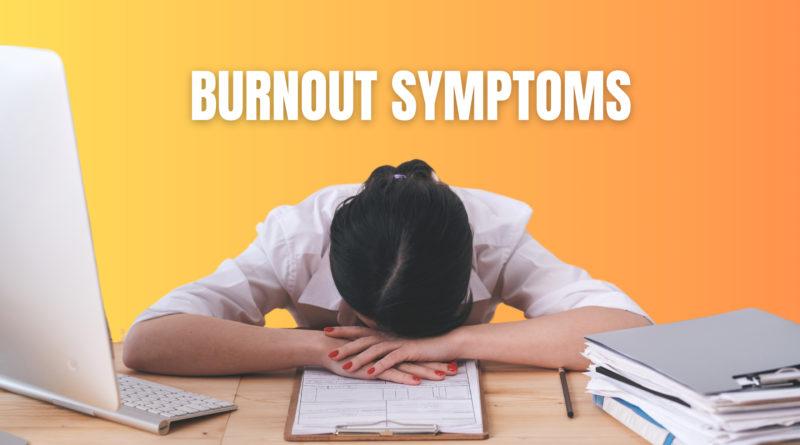Burnout Symptoms: Key Signs and Prevention Tips
Burnout Symptoms: Identifying Signs of Stress and Strategies for Management
Burnout is increasingly common in today’s fast-paced work environments and is characterized by emotional, physical, and mental exhaustion due to prolonged stress. It typically manifests when individuals feel overwhelmed, drained, and incapable of meeting constant demands, severely impacting their productivity and overall health.
Understanding Burnout
Burnout is more than just an overwhelming feeling of exhaustion; it’s a severe syndrome recognized by the World Health Organization that results from chronic workplace stress not successfully managed. It differs from general stress in that burnout consumes people, leaving them empty, devoid of motivation, and beyond caring. Individuals working in high-stakes or high-stress environments such as healthcare, education, and corporate sectors are particularly susceptible.
Identifying Symptoms of Burnout
Emotional Symptoms:
- Feelings of helplessness, detachment, or becoming increasingly cynical.
- A sense of professional ineffectiveness and lack of accomplishment.
Physical Symptoms:
- Chronic fatigue and feeling drained most of the time.
- Sleep habits or diet changes, frequent illnesses due to weakened immune responses.
Behavioral Symptoms:
- Withdrawal from responsibilities or the abandonment of hobbies.
- Isolation from others, increased irritability, and use of substances or food to cope.
Causes of Burnout
Burnout stems from various factors that may include:
- Lack of control over one’s work or schedules.
- Unclear job expectations or overly demanding workplace dynamics.
- Working in a chaotic or high-pressure environment.
- Extremes of activity (monotonous or chaotic).
- Lack of social support or recognition at work.
- Work-life imbalance where work consumes the majority of time and effort without sufficient personal time.
Managing and Preventing Burnout
Workplace Strategies:
- Employers and managers can help by promoting a positive work environment, recognizing employee efforts, ensuring fair treatment, and encouraging team collaboration.
- Redesigning jobs to provide clear role expectations and adequate resources.
Individual Strategies:
- Develop resilience and set boundaries to manage work-life balance effectively.
- Engage in regular physical activities, maintain a healthy diet, and get sufficient sleep.
- Practice relaxation techniques such as mindfulness or meditation.
Professional Help:
- Consulting a mental health professional may be crucial for individuals showing severe symptoms of burnout. Therapy can provide strategies for better stress management and coping mechanisms.
Long-term Implications of Burnout
Unaddressed burnout can lead to severe chronic conditions such as depression, anxiety, cardiovascular disease, and a significant decline in quality of life. Recognizing the signs early and seeking appropriate intervention is critical to prevent these potentially debilitating outcomes.
Frequently Asked Questions
Question: How do I differentiate burnout from just being stressed?
- Unlike stress, burnout is marked by disengagement and lack of motivation, whereas stress typically increases engagement and urgency.
Question: What should I do if I recognize burnout symptoms in a colleague?
- Please encourage them to speak to a supervisor about their feelings and seek professional help. Offer support and listen without judgment.
Question: Can changing jobs cure burnout?
- While changing jobs can alleviate symptoms if the environment is the cause, addressing the underlying issues, such as personal stress management skills or life balance, is crucial.
The Importance of Addressing Burnout
Recognizing and addressing burnout is essential for maintaining personal health and professional efficiency and satisfaction. Implementing strategic changes can significantly reduce risks and foster a healthier, more engaging work environment. Encourage ongoing dialogue about mental health in the workplace and promote policies that support cognitive health well-being.

